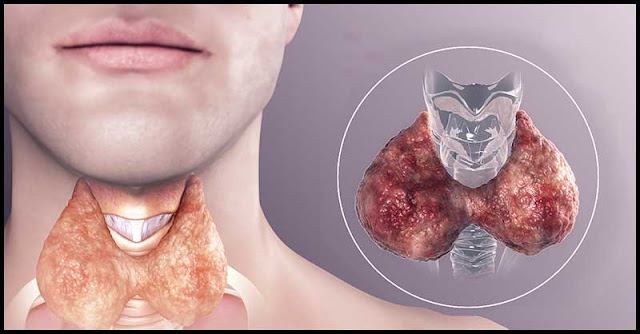Hyperthyroidism is the overproduction of thyroid hormones by an overactive thyroid.
The thyroid glands produce hormones known as thyroxine (T4) and triiodothyronine (T3). These hormones regulate the body’s metabolic rate by increasing oxygen absorption in every cell and helping in the formation of protein ribonucleic acid or RNA. The TSH (thyroid-stimulation hormone) that is produced in the pituitary gland is the one responsible for controlling these hormones. When production of this thyroid hormone rises in spite of the level of TSH produced, hyperthyroidism occurs, which will affect the body causing a variety of related symptoms.
Hyperthyroidism Symptoms
- Low Sex Drive
- Impotence in Males
- Muscle Cramps, Spasms, Twitching & Tremors
- Acne
- Itchiness
- Fatigue
- Headaches
- Rapid heartbeat
- Difficulty breathing
- Hair becoming brittle
- Losing weight regardless of the amount of food you eat
- Eye Twitching
- Stomach Problems
- Sweating more than usual
- Hair Loss
- Anger, Mood Swings, or Feeling Anxious
- Changes in Body Temperature
- Nausea
- Diarrhea or Experiencing more bowel movements than usual
What Causes Hyperthyroidism?
The most common causes of hyperthyroidism include:
Graves’ Disease
This causes when the body’s natural immune system attacks the thyroid gland, which in return fights back by making too much thyroid hormone.
Excessive Iodine Intake
For some individuals, certain iodine medications, some cough syrups, and too much iodine in the diet can cause too much or too little thyroid hormone production.
Thyroiditis
Inflammation of the thyroid gland is the cause of this condition. Also, it can lead to the release of excess amounts of thyroid hormones.
Thyroid Nodules
Sometimes, the thyroid may develop cysts and lumps called nodules which can secrete too much thyroid hormone. Most of them are harmless. But to be sure, if you feel a lump it’s best to have it checked by a doctor.
Eating Disorders
Thyroid glands’ regular behavior can be changed as a result of decreased nutrition from eating disorders.
Foods To Eat
Include these healing foods in your diet:
Whole foods – Aim for fresh fruits, vegetables, and lean proteins.
Green juices – Obtain vital nutrients from fresh green juices vegetables such as spinach, broccoli, cauliflower, kale, and spirulina.
Foods rich in Vitamin D and Omega-3s – Salmon has vitamin D, which works with calcium to prevent bone loss. It is also rich in omega-3 fatty acids that keep you healthy. Other foods containing vitamin D are mushrooms and eggs while walnuts, flaxseed oil, and olive oil are high in omega-3s.
Protein – Weight loss is a common symptom of hyperthyroidism. Eating protein-rich foods can help you stay at a healthy weight. Some of the foods high in protein include nuts, beans, kinds of seafood, and eggs.
Ginger – Can help boost immune function.
Bone Broth – Aids in healing of leaky gut issues that can make hyperthyroidism worse and supports detoxification as well.
Anti-inflammatory herbs – These include oregano, basil, and rosemary which can help improve thyroid function and can be anti-inflammatory as well.
Foods To Avoid
- Gluten
- Conventional Dairy
- Artificial flavorings or dyes
- Sugar
- Packaged foods
Remedies And Natural Treatments For Fast Improvement
L-carnitine (1000 mg 2-4x daily) – Help reduce hyperthyroid symptoms.
Lemon balm (2 mL 3x daily) – Prevent antibodies from binding to the thyroid gland.
Plant sterols – Helps balance the immune system, follow directions on the bottle.
B-complex (50 mg 2x daily) – Help lessen symptoms of hyperthyroidism.
Bugleweed (2 mL 3x daily) – Contains acids that can help prevent thyroid damage.
Nowadays, thyroid problems are very common. With appropriate treatment, hyperthyroidism symptoms can be balanced and treated. Many treatments aim to decrease the amount of thyroid hormone made by the thyroid so that the excess amount will not get into the bloodstream.
As everyone is different, there are also a number of treatments available. It’s up to you to explore if what works best for you. Also, try incorporating exercise, a healthy diet, mind-body therapies, and meditation in your regular routine. It would also be better if you consult your doctor first.









